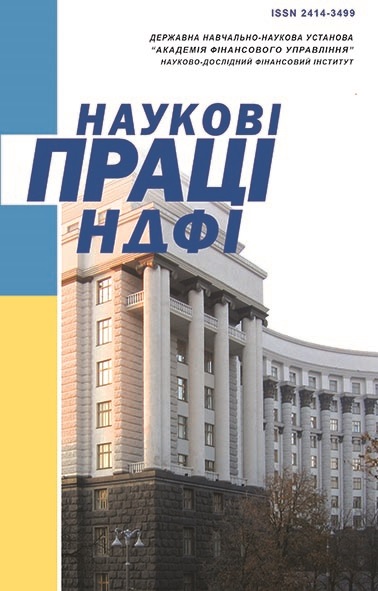
|
№ 4/2018
2. Akimov, V. A., Durnev, R. A., & Zhdanenko, I. V (2012). In search of approaches to the estimation of labour input of research and development in the field of health and safety: preconditions and assumptions to definition of expenditures of labour. Modern High Technologies, 1. Retrieved from www.top-technologies.ru/ru/article/view?id=29674 [in Russian]. 3. Antashov, V. A. (1989). Experience in labor valuation in scientific and technical organizations. Minsk: BelNIINTI [in Russian]. 4. Belocerkovskij, V. I. (1976). Rationing of research and design work. Leningrad: Lenizdat [in Russian]. 5. Bekleshov, V. K., Zavlin, P. N. (1989). Rationing in scientific and technical organizations. Moscow: Ekonomika [in Russian]. 6. Vorotnikova, V. V. (1977). Rationing labor engineers and employees. Moscow: Ekonomika [in Russian]. 7. Horbatiuk, K. V. (2007). Ways to improve the normalization of labor in Ukraine. Retrieved from www.confcontact.com/2007nov/gorbatyuk.php [in Ukrainian]. 8. Hrishnova, O. A. (2001). Human capital: formation in the system of education and vocational training. Kyiv: Znannia [in Ukrainian]. 9. Dziuba, S. H., Haidai, I. Yu. (2005). Rationing labor in the domestic and international economy. Donetsk: TOV "Iuho-Vostok, LTD" [in Ukrainian]. 10. Dobrov, G. M., Zadorozhnyj, Je. M., & Shhedrina, T. I. (1978). Performance management of scientific activity. Kiev: Naukova dumka [in Russian]. 11. Zvjagin, A. A., Zvjagina, N. I. (1991). Comprehensive approach to the development of standards for labor-intensive R&D. Moscow: Sistema [in Russian]. 12. Kushnir, A. B. (2010). Features of creative work in matters of rationing. Bulletin of the Research Institute of Labor, 23 (34), 64-66 [in Russian]. doi.org/10.5840/eps201023110 13. Maslow, A. H. (1970). Motivation and Personaliti (2nd ed.). New York. Retrieved from s-f-walker.org.uk/pubsebooks/pdfs/Motivation_and_Personality-Maslow.pdf. 14. Vroom, V. H. (1964). Work and Motivation. New York: Wiley. Retrieved from garfield.library.upenn.edu/classics1985/A1985AKX9100001.pdf. 15. Tamura, S. (2013). Measurement of input resources for standardization activities in basic research and applied and development research, and the difference of the measuring results between the research types. Synthesiology, Vol. 6, No. 3, 170-179. doi.org/10.5571/syntheng.6.166 16. Arveson, P. (2012). Strategic Management of Scientific Research Organizations. Retrieved from www.washacadsci.org/Journal/Journalarticles/V.98-3-Strategic_Management_of_Scientific_Research_Organizations_Arveson.pdf. 17. Iefymenko, T. I. (2012). Financial science and economic reforms: institutional aspect. Finance of Ukraine, 8, 5-22 [in Ukrainian]. 18. Manannikov, S. A. (2010). Methodical basis for the development of a regulatory framework for planning research and development in industry (Master's thesis). Moscow. Retrieved from www.mospolytech.ru/download.php?f=TWFuYW5uaW5rb3YucGRm [in Russian]. 19. Ivlieva, N. P. (2005). Theoretical and methodological bases for determining the price of scientific and technical products in construction. Kyiv. Retrieved from lawdiss.org.ua/2011-01-15-11-45-49.html?page... [in Ukrainian]. 20. Yehorov, Ye. S. (2012). On normalization of labor in innovation activity. Actual problems of state and law, pp. 428-433. Retrieved from www.apdp.in.ua/v63/65.pdf [in Ukrainian]. 21. Feoktistova, O. A. (2014). Norm-setting of research work: methodological approaches. Science studies, 5 (24). Retrieved from naukovedenie.ru [in Russian]. 22. Samarina, Yu. S., Shkvarova, A. S. (2017). Researchers' work: are work measurement techniques applicable? Retrieved from cyberleninka.ru/article/n/trud-nauchnyh-rabotnikov-primenimo-li-normirovanie [in Russian]. 23. Zajnullina, M. R., Nabieva, L. G., & Palej, T. F. (2013). Organization and regulation of labor in non-production sectors. Kazan'. Retrieved from kpfu.ru/staff_files/F548518707/ucheb.posobie.Organizaciya.normirovaniya.pdf [in Russian]. 24. Nosikov, O. (2014, April 21). Rationalization of research: why and how to do it? Salary and staffing. Retrieved from zpkadry.com.ua/ru/journal/zpkadry/article/247 [in Ukrainian]. 25. All-Union Scientific Center For Labor Organization. (1990). Rationing of labor of specialists of scientific research institutes and design departments: Intersectoral methodical recommendations. Moscow: Ekonomika. Retrieved from expert275.ru/wp-content/uploads/2016...pdf [in Russian]. 26. Volchkova, N. (2016). Formally correct? Rationing of scientific work is inevitable. Science policy, 1-2. Retrieved from www.poisknews.ru/theme/science-politic/17203/ [in Russian]. |
|
|
|
|
THE ACADEMY OF FINANCIAL MANAGEMENT |

|
|
|



